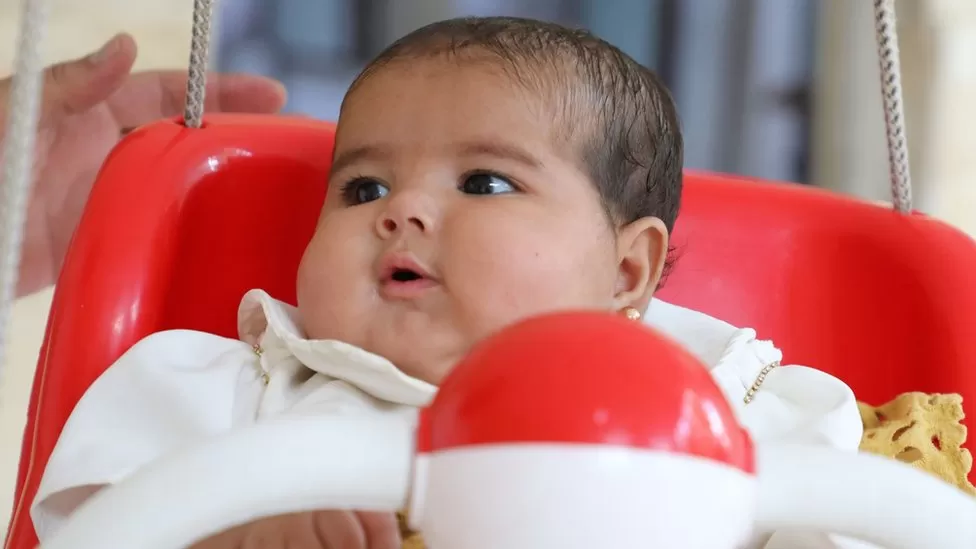WHEN Afraa was found in the rubble of a collapsed building in Syria, her umbilical cord was still attached to her mother, who had died just after giving birth. The video of the baby’s rescue from the earthquake in February captivated the world. Since then she has made a remarkable recovery.
Today, Afraa is six months old – a typical happy, healthy baby.
Her aunt and uncle are raising her along with their seven children in the Syrian town of Jindayris, not far from the Turkish border.
“She’s very still young but she reminds me of her dad and her sister Nawara, especially her smile. They passed away in the earthquake too,” says her uncle, Khalil al-Sawadi, rocking the smiling baby girl in her swing. “They would often spend time at ours. She doesn’t give us a hard time at all.”
On 6 February, a devastating earthquake ripped through south-eastern Turkey and northern Syria, killing more than 44,000 people. Just after the devastating quake hit Jindayris, Afraa’s mother went into labour and gave birth under the rubble of her home. She died before rescuers found them. Baby Afraa was the only member of her immediate family to survive – her father, Abu Rudaina, and her four siblings died, along with her mother.
“We saw that Abu Rudaina’s house had collapsed,” says Khalil. “My wife started screaming: ‘My brother, my brother’.”
Khalil recalls vividly the moment he pulled Afraa from under the rubble: “The roof had fallen over them. Someone called me and said they found a woman’s body. As soon as I arrived, I started digging, then I heard a voice. It was baby Afraa still attached to her mother. We were determined to save her, we knew she would be the only memory left of her family.”
A dramatic video of the rescue was shared on social media and went viral. The baby was taken to hospital and was initially given the name Aya, which means miracle in Arabic.
The doctor looking after her said she had bumps and bruises and was barely breathing. Six months on, those injuries are no longer visible.
“Immediately after the earthquake she had some chest problems because of the dust from the rubble, but now her health is great,” says Khalil. “I took her to the doctor to check up on her and now her health is 100%.”
But the past six months have been tough. When Afraa was in hospital, thousands of people around the world offered to adopt her, so Khalil and his wife Hala had to prove they really were related before they were allowed to take care of her. “I felt that they didn’t want to hand Afraa to us,” he says.
Hala had to do a DNA test and waited “almost 10 days” to hear back.
There had been so much interest in Afraa’s story that Khalil and his family worried as they waited for the DNA results, that someone might try to kidnap her. They spent as much time as they could at the hospital and took extra precautions. “Both the civil and military police helped us protect her,” he says. “There were lots of them. They stayed in the room next to Afraa and watched over her day and night.”
Eventually, the DNA results confirmed Hala was a blood relative – the sister of Afraa’s father – and the little girl was discharged from hospital.







